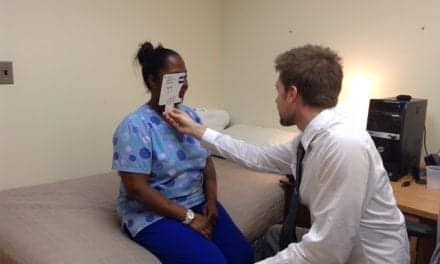Researchers who studied 100 twin pairs have identified a gene mutation that may allow the carrier to function normally on less than 6 hours of sleep per night. The genetic variant also appears to provide greater resistance to the effects of sleep deprivation.
Results show that a participant with p.Tyr362His—a variant of the BHLHE41 gene–had an average nightly sleep duration of only 5 hours, which was more than 1 hour shorter than the noncarrier twin, who slept for about 6 hours and 5 minutes per night. The twin with the gene mutation also had 40% fewer average lapses of performance during 38 hours without sleep and required less recovery sleep afterward–sleeping only 8 hours after the period of extended sleep deprivation compared with his twin brother, who slept for 9.5 hours.
According to the authors, this is only the second study to link a mutation of the BHLHE41 gene—also known as DEC2—to short sleep duration. The study provides new insights into the genetic basis of short sleep in humans and the molecular mechanisms involved in setting the duration of sleep that individuals need.
“This work provides an important second gene variant associated with sleep deprivation and for the first time shows the role of BHLHE41 in resistance to sleep deprivation in humans,” says lead author Renata Pellegrino, PhD, senior research associate in the Center for Applied Genomics at The Children’s Hospital of Philadelphia, in a release. “The mutation was associated with resistance to the neurobehavioral effects of sleep deprivation.”
Study results are published in the August 1 issue of the journal Sleep.
The study group comprised 100 twin pairs–59 monozygotic pairs and 41 dizygotic pairs–who were recruited at the University of Pennsylvania. All twin pairs were the same sex and were healthy with no chronic conditions. Nightly sleep duration was measured at home by actigraphy for 7 to 8 nights. Response to 38 hours of sleep deprivation and length of recovery sleep were assessed in a sleep lab. During sleep deprivation, cognitive performance was measured every 2 hours using the Psychomotor Vigilance Test.
Although individual sleep needs vary, the American Academy of Sleep Medicine (AASM) recommends that adults get about 7 to 9 hours of nightly sleep. However, a small percentage of adults are normal short sleepers who routinely obtain less than 6 hours of sleep per night without any complaints of sleep difficulties and no obvious daytime dysfunction.
“This study emphasizes that our need for sleep is a biological requirement, not a personal preference,” says AASM president Dr Timothy Morgenthaler. “Most adults need at least 7 hours of quality sleep each night for optimal health, productivity, and daytime alertness.”
According to the AASM, most people who regularly get 6 hours of sleep or less are restricting their sleep and suffer from insufficient sleep syndrome, which occurs when an individual persistently fails to obtain the amount of sleep required to maintain normal levels of alertness and wakefulness. Data from the Centers for Disease Control and Prevention indicate that 28% of US adults report sleeping 6 hours or less in a 24-hour period.



